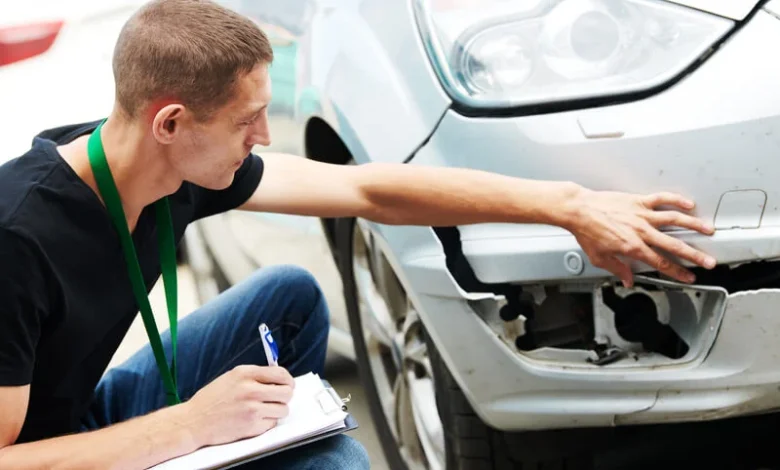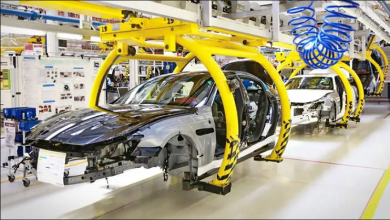How to Buy a Modified Car: What to Look for in Custom Vehicles for Sale

Buying a modified car can be an exciting experience for car enthusiasts who are looking for something unique and tailored to their personal taste. However, purchasing a modified or custom vehicle comes with its own set of challenges. Unlike standard used cars, modified cars may have undergone significant alterations, which can impact their safety, performance, and value. In this blog, we will discuss how to buy a modified car, what to look for during the process, and the critical factors you need to keep in mind to make a smart purchase, including understanding how categories like cat s may affect your decision.
Understanding the Appeal of Modified Cars
Modified cars often appeal to buyers who are looking for more than just a standard vehicle. Whether it’s for aesthetic enhancements, performance upgrades, or both, custom vehicles allow owners to express their individuality and create a car that suits their specific preferences. Common modifications include engine tuning for increased power, suspension adjustments for better handling, custom exhaust systems, body kits, and interior upgrades like new seats, sound systems, or digital displays.
However, while modifications can greatly improve a vehicle’s performance and appearance, they can also introduce potential problems. Depending on how the modifications were carried out, they may affect the car’s reliability, safety, and even legality. As a buyer, it’s essential to thoroughly evaluate any modified car before making a purchase to avoid potential pitfalls.
Checking the Quality of Modifications
When purchasing a modified car, one of the first things to check is the quality of the modifications. Modifications that are poorly executed or performed by unqualified mechanics can lead to safety concerns and long-term mechanical issues. Start by inspecting the vehicle’s modifications to ensure they have been done to a high standard. Ask the seller if the modifications were performed by a professional mechanic or workshop and request documentation for any major work done, such as engine tuning, suspension changes, or bodywork adjustments.
Pay special attention to performance-enhancing modifications. For example, if the car has had engine upgrades or turbochargers installed, verify that the parts are high quality and suited to the vehicle. Poorly installed modifications can cause the engine to wear out faster or even fail entirely. The same goes for suspension, brakes, and exhaust systems—ensure that all upgrades are properly fitted and working as intended.
Evaluating the Car’s Structural Integrity
When buying a modified car, it’s crucial to check its structural integrity, especially if the vehicle falls into certain insurance categories like Cat S. A Cat S car is a vehicle that has sustained structural damage in the past but has been repaired and deemed roadworthy. Although these cars can be safe to drive, it’s essential to thoroughly assess the repairs and ensure they were carried out to a high standard. Poor repairs on a Cat S car could mean the vehicle’s structure is still compromised, which may affect safety in the event of another collision.
When buying a Cat S car, ask for detailed records of the damage and repairs, and consider having the car inspected by a professional mechanic to ensure it’s structurally sound. Keep in mind that, while a Cat S car might be cheaper than an equivalent vehicle without structural damage, it may be harder to resell, and insurance premiums may be higher.
Legality and Roadworthiness of the Modifications
Another important factor to consider when buying a modified car is whether the modifications comply with local laws and regulations. Some modifications, especially performance upgrades, may make the car illegal to drive on public roads. For example, excessively loud exhaust systems or improper lighting modifications may violate noise and lighting regulations. Similarly, some engine upgrades might exceed emissions standards, making the car non-compliant with environmental laws.
Before purchasing the vehicle, ensure that all modifications have been declared to the DVLA (Driver and Vehicle Licensing Agency) and that they meet legal requirements. Additionally, modifications should not void the vehicle’s MOT certification, as the car must still pass its annual MOT test to be considered roadworthy. If you’re unsure, consult a legal expert or a mechanic familiar with local regulations to verify that the car is road-legal.
Reviewing the Vehicle’s Service and Modification History
When buying any used car, it’s always a good idea to review its service history. For modified cars, this step is even more crucial, as it can provide insight into how well the car has been maintained, both before and after modifications. Ask the seller for a comprehensive service record, which should include details of regular maintenance, repairs, and any modifications that were made to the car.
This documentation is particularly important for performance modifications, as these can put additional stress on the engine and other components. Regular servicing is critical to ensuring that the vehicle remains in good condition. Additionally, check if the seller has had the car serviced by reputable garages or specialists familiar with modified vehicles, as this indicates a higher level of care.
Understanding Insurance for Modified Cars
Insurance can be more complicated when it comes to modified cars. Any modification that alters the car’s performance, appearance, or value needs to be declared to the insurance company. Failure to disclose modifications could invalidate your insurance, leaving you unprotected in the event of an accident. Some insurers may charge higher premiums for modified vehicles due to the increased risk associated with performance upgrades or custom parts.
Additionally, owning a Cat S car could further complicate insurance. Since Cat S cars have been structurally damaged, insurers may view them as higher risk, resulting in increased premiums or, in some cases, refusal to insure the vehicle. Before purchasing a modified or Cat S car, contact your insurance provider to get a quote and ensure you understand how the modifications will affect your policy and premiums.
Is a Modified Car Worth the Investment?
Ultimately, whether a modified car is worth the investment depends on your needs, preferences, and willingness to accept the risks that come with custom vehicles. For car enthusiasts who value performance upgrades and unique aesthetics, buying a modified car can be a thrilling and rewarding experience. However, it’s important to do your due diligence by thoroughly inspecting the vehicle, understanding its history (especially if it’s a Cat S car), and ensuring that all modifications are legal and roadworthy.
If you’re not well-versed in cars or modifications, it’s worth bringing along a mechanic or expert to help you evaluate the vehicle before committing to a purchase. With the right approach, buying a modified car can offer you a one-of-a-kind vehicle that fits your specific tastes and driving preferences.
Conclusion
Purchasing a modified car is a unique experience that requires careful consideration of factors such as the quality of modifications, the car’s history (including whether it’s a Cat S car), and its legal and insurance implications. By following the tips outlined in this guide, you can make an informed decision and potentially find a custom vehicle that offers both performance and value. Whether you’re in the market for a powerful engine upgrade, custom bodywork, or a unique interior design, a modified car can provide a driving experience unlike any other. Just be sure to perform due diligence to ensure you’re getting a car that’s safe, reliable, and worth the investment.









